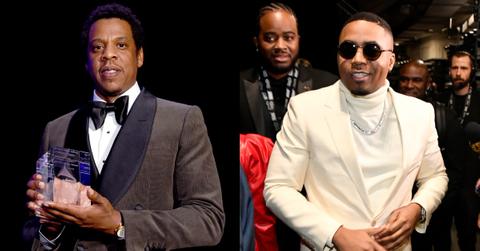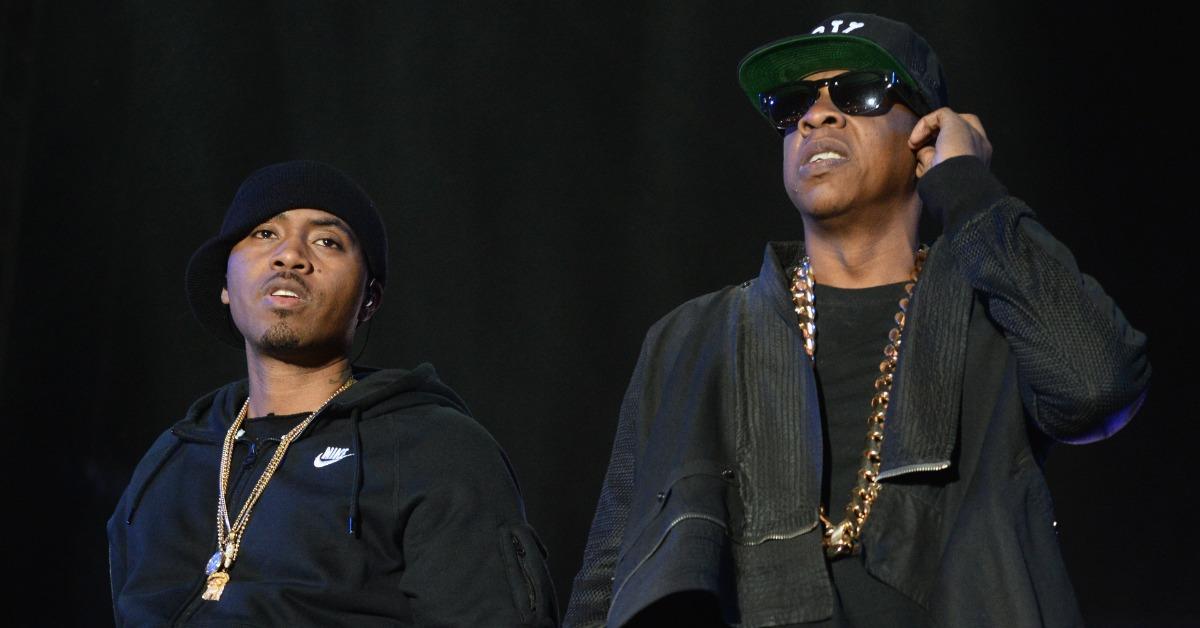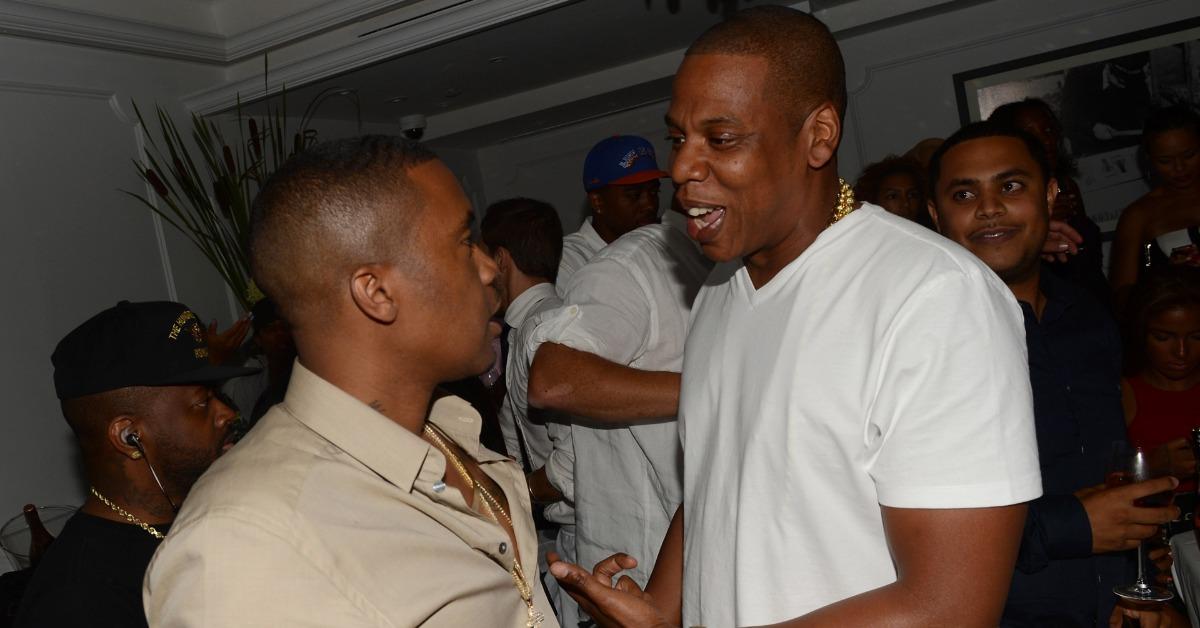Nas and Jay-Z's Beef Is One of the Most Well-Documented Rivalries in Hip-Hop History
Published Aug. 6 2021, 1:22 p.m. ET

Throughout the history of hip-hop music, personal beef between big-name stars in the genre has, at times, become a part of the genre's lore. Whether it be Biggie vs. 2Pac, Kanye West vs. Drake, or any of the other numerous feuds that have erupted over the years between rap stars, they usually are accompanied by some seriously tense moments and truly memorable music.
It's no secret that industry megastars Nas and Jay-Z, who have had a hot and cold relationship that has developed into serious beef at multiple points throughout their careers. In both explicit and subliminal messages, the two stars have traded shots at one another on numerous occasions, making their feud a fixture of fans' attention for some time.
Thankfully, the details of their specific beef have been thoroughly documented over the years. So, what is the reasoning behind why Nas and Jay-Z have had such bad blood between them for so long? Here's a breakdown.

Nas and Jay-Z's beef has existed for decades, but how did it actually begin?
The duo's dislike for each other can be traced all the way back to the late-90s when both rappers were entering some of the most formative years of their careers. Nas reportedly neglected to appear at the scheduled recording session for "Bring It On" off of the Brooklyn rapper's debut album "Reasonable Doubt," which likely spurred some hard feelings in Jay-Z.
Just a month after Jay-Z's project, Nas' second album, "It Was Written," dropped and included what is largely regarded as the rapper's first real shot at Jay-Z. The album's first track, "The Message" sees Nas rap "Lex with TV sets the minimum."
What does this have to do with Jay-Z? Well, on his song "Can I Live," the rapper repeatedly mentions Lexus cars, rhyming "My mind is infested, with sick thoughts that circle like a Lexus" and featured a Lexus GS in the "Dead Presidents II" music video.
Nas admitted later on in his career that the diss was indeed directed at Jay-Z, telling Complex that he "saw JAY-Z driving a Lexus with the TVs in them. I got rid of my Lexus at that point and I was looking for the next best thing. It wasn’t a shot at Jay but it was just saying that’s the minimum you gotta have."

It wasn't until 1997 that Jay-Z responded with his first shot at Nas, writing: "I'm from where n----s pull your card, and argue all day about / Who’s the best MC’s, Biggie, Jay-Z, and Nas" on the song "Where I'm From."
Shots continued to be thrown between the two stars for a few years after those initial verses came out, with both taking to live performances and records subtly — and directly — diss one another.
Things between Nas and Jay-Z hit a boiling point in 2001.
The point that is often regarded as the pinnacle of their feud was when Nas released his 2001 album "Stillmatic," which included the now-legendary diss track "Ether," fully aimed at Jay-Z. In the song, Nas made claims that Jay-Z is misogynistic, utilized homophobic slurs to demean him, and even implied that his entire flow was stolen from Biggie.
Jay-Z wasn't going down without a fight, however, and soon after responded on his song "Supa Ugly," in which Jay-Z implied that he had a three-year-long affair with Nas' girlfriend, Carmen Bryan.
Many, including Jay-Z's own mother, felt as though he went too far with that track and forced an apology out of the star. They still traded shots for a few years after that on various records, although the general consensus at the time was that Nas had won.

Nas and Jay-Z put an end to their beef in 2005, and have worked to remedy their relationship since.
By 2005, it seems as though the duo were ready to hang up the gloves and be friendly again. During Jay-Z's "I Declare War" tour, he invited Nas on stage at a show in New Jersey and the two made amends, officially ending their years-long rivalry.
A year after that, Nas ended his deal with Columbia Records and signed to Def Jam, which is led by Jay-Z. In the time since, the two have collaborated on songs such as "Black Republican," "Sorry Not Sorry," and "Bath Salts."